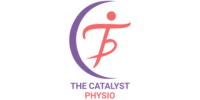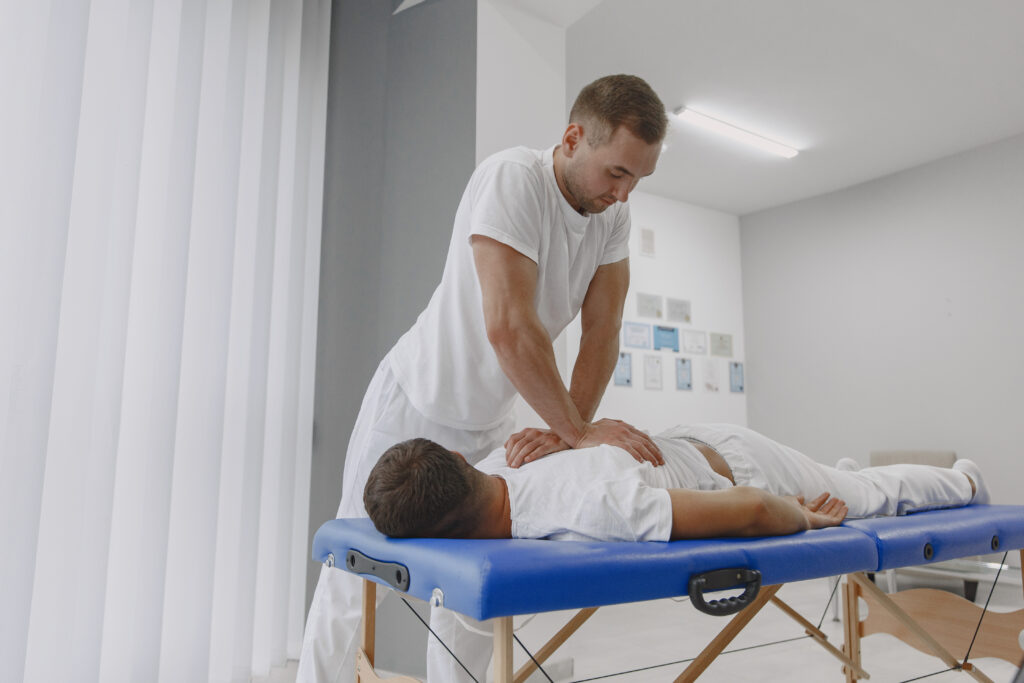Post-surgery physiotherapy at Home is a vital element of the recuperation method, aimed toward promoting recuperation and restoring functionality after surgical strategies. In this newsletter, we’ll delve into the advantages of submit-surgical operation physiotherapy, the benefits of home-based total rehabilitation, key components of physiotherapy at home, recommendations for maximizing healing, and conclude with a few often asked inquiries to provide complete information on this subject matter.
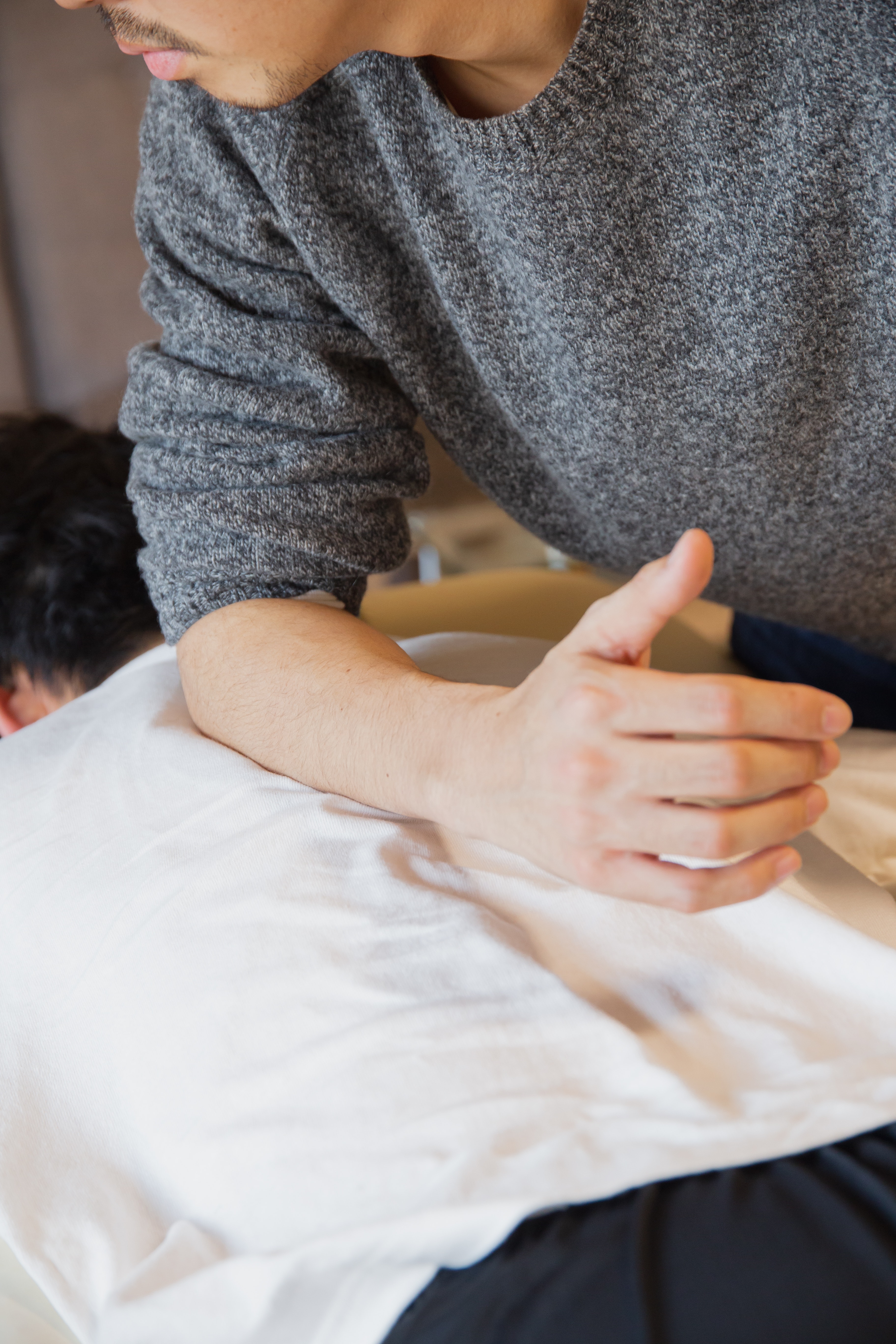
Introduction to Post Surgery Physiotherapy at Home
Post surgery physiotherapy at home is an essential aspect of the recovery method for individuals present process surgical approaches. This form of rehabilitation includes specialized physical games and remedies designed to promote healing, restore functionality, and improve typical first-class lifestyles following a surgical operation. By supplying customized care within the comfort of one’s home, put-up-surgical treatment physiotherapy offers several advantages and blessings over conventional sanatorium-based total rehabilitation. post surgery physiotherapy at home In this article, we will delve into the significance of put-up-surgical treatment physiotherapy, its benefits, key components, and suggestions for maximizing recuperation at home.
Post surgery physiotherapy at home involves a series of specialized exercises and therapies designed to facilitate recovery and improve outcomes following surgical procedures. When conducted at home, physiotherapy offers several advantages over traditional clinic-based rehabilitation, including convenience, personalized care, and enhanced comfort.
Key Components of Post Surgery Physiotherapy at Home

Assessment and Evaluation: A thorough assessment guides the development of a personalized treatment plan tailored to individual needs.
Individualized Exercise Program: Targeted exercises address specific deficits, focusing on improving strength, flexibility, and mobility.
Pain Management Techniques: Various strategies, including manual therapy and relaxation techniques, help alleviate post-operative pain.
Education and Advice: Valuable education empowers individuals to take an active role in their recovery, promoting adherence to treatment plans.
Progress Monitoring: Regular assessment ensures the effectiveness of the treatment plan, with adjustments made as needed to optimize outcomes.
Tips for Maximizing Recovery at Home
Follow Recommendations
Adhere closely to the recommendations provided by your healthcare team, including prescribed exercises, medications, and lifestyle modifications.
Stay Consistent
Consistency is key to successful recovery. Make sure to perform your prescribed exercises regularly and adhere to your treatment plan diligently.
Communicate Openly
Keep open lines of communication with your healthcare providers. Report any changes in symptoms or concerns promptly to ensure that your recovery progress is monitored closely.
Practice Self-Care
Take care of yourself both physically and mentally. Get adequate rest, eat a balanced diet, stay hydrated, and manage stress levels to support your body’s healing process.
Stay Positive
Maintain a positive attitude and mindset throughout your recovery journey. Believe in your ability to overcome challenges and focus on the progress you’re making towards regaining your health and mobility.
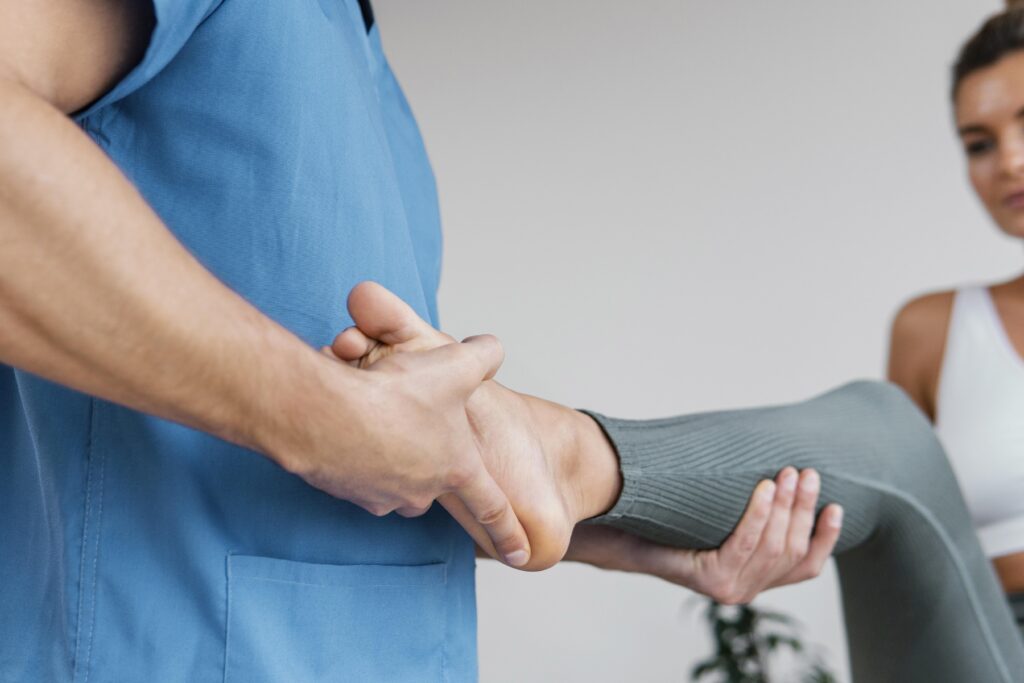
Benefits of Post Surgery Physiotherapy
Post surgery physiotherapy at home plays a crucial role in the recovery process, offering a range of benefits that contribute to improved outcomes and enhanced quality of life. Some of the key benefits include:
Accelerated Healing: Physiotherapy techniques promote blood circulation, tissue repair, and overall healing, helping to expedite the recovery process following surgery.
Restored Mobility: Targeted exercises and therapies help to regain lost mobility, strength, and flexibility, enabling individuals to restore their range of motion and functional abilities.
Pain Management: Physiotherapy interventions, including manual therapy, exercises, and modalities, are effective in reducing post-operative pain and discomfort, and enhancing comfort levels during the recovery period.
Reduced Risk of Complications: By addressing post-operative challenges such as muscle weakness, joint stiffness, and reduced mobility, physiotherapy helps to minimize the risk of complications such as blood clots, pressure sores, and respiratory issues.
Improved Functionality: Through a combination of exercises, activities, and functional training, physiotherapy helps individuals improve their overall functionality and independence, enabling them to perform daily tasks with greater ease and confidence.
Enhanced Quality of Life: By promoting physical function, mobility, and independence, post surgery physiotherapy at home contributes to an improved quality of life for individuals undergoing surgical procedures, allowing them to engage in meaningful activities and participate fully in their daily lives.
Advantages of Home-Based Physiotherapy
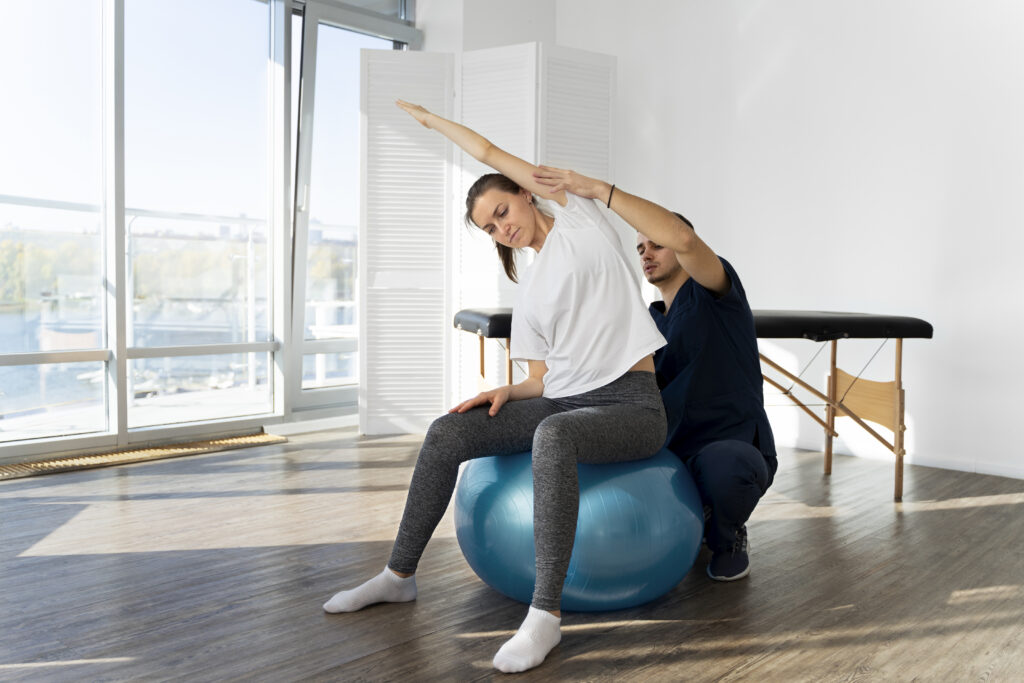
Convenience: Home-based rehabilitation eliminates the need for travel to a clinic, making rehabilitation more accessible and convenient.
Personalized Care: Tailored treatment plans catered to individual needs ensure a more effective and personalized rehabilitation experience best Physiotherapy In Delhi.
Comfort and Familiarity: Recovering in the comfort of one’s own home fosters a sense of security and familiarity, reducing stress levels.
Family Involvement: Home-based physiotherapy encourages the involvement of family members and caregivers, fostering a supportive environment conducive to recovery.
Cost-Effectiveness: With no transportation costs or clinic fees, home-based physiotherapy offers a cost-effective alternative to traditional clinic-based rehabilitation.

Conclusion
In conclusion, post surgery physiotherapy at home offers a holistic and effective approach to rehabilitation, promoting accelerated healing, restored functionality, and enhanced quality of life. By embracing home-based physiotherapy and adhering to personalized treatment plans, individuals can embark on a successful recovery journey with confidence and optimism.
In conclusion, publish-surgery physiotherapy at home is a crucial thing of the recovery process, imparting several blessings and blessings over traditional sanatorium-based total rehabilitation. By embracing domestic-primarily based physiotherapy and following customized remedy plans, people can expedite recuperation, regain capability, and improve their normal fine of existence. post surgery physiotherapy at home remember to stay steady, talk brazenly with healthcare companies, and prioritize self-care at some point in the recuperation adventure. With willpower and perseverance, reaching successful outcomes and returning to the most useful fitness is inside attained.
Frequently Asked Questions
Q1. Is post surgery physiotherapy at home painful?
While some discomfort may be experienced during certain sporting activities, physiotherapy strategies are designed to relieve aches and sell restoration. The degree of soreness varies depending on the character’s circumstance, the sort of surgical procedure undergone, and the specific sports prescribed by the physiotherapist. It’s crucial to speak openly with your healthcare company about any pain or discomfort you could enjoy throughout physiotherapy classes, as they can modify your remedy plan thus to ensure your comfort and optimize your recovery method.
Q2. How long does post surgery physiotherapy at home last?
The duration of post-surgery physiotherapy varies depending on several factors, including the type of surgery performed, the extent of the surgical procedure, and the individual’s overall health and fitness level. In general, post surgery physiotherapy at home may last for several weeks to several months, with the frequency and duration of sessions gradually decreasing as the individual progresses in their recovery journey. It’s important to follow the recommendations of your healthcare provider and adhere to your prescribed physiotherapy regimen to maximize the benefits of treatment and achieve optimal recovery outcomes.
Q3. Can I perform physiotherapy exercises on my own at home?
While supervised sessions with a physiotherapist are recommended initially to ensure proper technique and safety, many exercises can be performed independently at home once you have been properly instructed. It’s important to follow the guidelines provided by your healthcare provider and to practice the exercises correctly to avoid injury and maximize the benefits of physiotherapy. However, it’s essential to consult with your physiotherapist before starting any new exercises or modifications to your treatment plan to ensure they are appropriate for your specific condition and stage of recovery.
Q4. What should I expect during a physiotherapy session?
During a physiotherapy session, you can expect a variety of activities tailored to your individual needs and goals. These may include:
- Assessment: Your physiotherapist will conduct a thorough assessment of your condition, including evaluating your range of motion, strength, flexibility, and any areas of pain or discomfort.
- Treatment Plan: Based on the assessment findings, your physiotherapist will develop a personalized treatment plan tailored to address your specific needs and goals.
- Exercise: You will likely engage in a series of targeted exercises designed to improve strength, flexibility, balance, and mobility. These exercises may include stretching, strengthening, and functional movements.
- Manual Therapy: Your physiotherapist may perform manual therapy techniques such as massage, joint mobilization, or manipulation to address areas of muscle tightness, joint stiffness, or pain.
- Education: Your physiotherapist will provide you with valuable education and advice on proper body mechanics, posture, and techniques to prevent injury and promote optimal recovery.
- Progress Monitoring: Throughout the session, your physiotherapist will monitor your progress and adjust your treatment plan as needed to ensure that you are making optimal gains and achieving your rehabilitation goals.
Q5. Is post-surgery physiotherapy covered by insurance?
Many insurance plans cover post surgery physiotherapy at home, but coverage may vary depending on your specific insurance provider and policy. It’s advisable to check with your insurance company to determine the extent of your coverage for physiotherapy services. Some insurance plans may require a referral from your physician or may have limitations on the number of sessions covered. Additionally, certain criteria may need to be met for coverage, such as the type of surgery undergone and the medical necessity of the physiotherapy treatment. It’s important to familiarize yourself with your insurance policy’s terms and conditions to understand your coverage and any potential out-of-pocket expenses associated with post surgery physiotherapy at home.
Dr. Priyanka Bharadwaj (Physiotherapist)
Introducing CB Home Physiotherapist: Meet Dr. Priyanka Bharadwaj, a highly skilled female physical therapy expert based in Khanpur, Delhi. She brings her expertise right to your doorstep, offering personalized physiotherapy services in Khanpur and nearby areas.
With a solid background in home physiotherapy, Dr. Priyanka specializes in treating a wide range of conditions, including back pain, neck pain, knee pain, sciatica, and more. She’s also adept at post-surgery rehabilitation, helping patients recover from procedures like shoulder, knee, and hip replacements.
In addition to her two years of experience in hospitals and clinics, Dr. Priyanka has honed her skills in various specialties such as pediatric, geriatric, neurological, and musculoskeletal physiotherapy. Whether it’s helping children regain mobility or assisting seniors with balance issues, she’s dedicated to improving her patients’ quality of life.
Dr. Priyanka holds a Bachelor’s degree in Physiotherapy from the Manav Rachna International Institute of Research and Studies. Her compassionate approach and commitment to patient well-being make her a trusted choice for anyone seeking expert physiotherapy care in the comfort of their own home.
